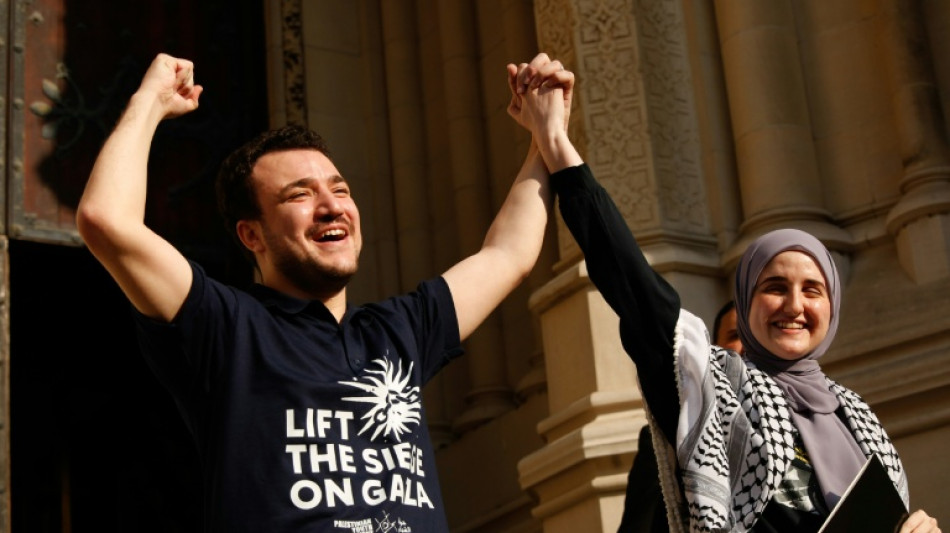
RBGPF
0.1000


Mahmoud Khalil, one of the most prominent leaders of pro-Palestinian protests on US campuses, recounted his experience surviving 104 days in Immigration and Customs Enforcement detention after being targeted for deportation by the Trump administration.
"I shared a dorm with over 70 men, absolutely no privacy, lights on all the time," the 30-year-old said Sunday on the steps of Columbia University, where he was a graduate student.
Khalil, a legal permanent resident in the United States who is married to an American citizen and has a US-born son, had been in custody since March facing potential removal proceedings.
He was freed from a federal immigration detention center in Jena, Louisiana on Friday, hours after a judge ordered his release on bail.
The activist was a figurehead of student protests at Columbia University against US ally Israel's war in Gaza, and the administration of Donald Trump labeled him a national security threat.
"It's so normal in detention to see men cry," Khalil recalled, deeming the situation "horrendous" and "a stain on the US Constitution."
"I spent my days listening to one tragic story after another: listening to a father of four whose wife is battling cancer, and he's in detention," Khalil detailed in his first protest appearance since regaining his freedom.
"I listened to a story of an individual who has been in the United States for over 20 years, all his children are American, yet he's deported."
The circumstances of the detention were tough, Khalil described, and he took solace where he could find it to gain the strength to carry on.
- 'We will win' -
"It is often hard to find patience in ICE detention," Khalil said.
"The center is crowded with hundreds of people who are told that their existence is illegal, and not one of us knows when we can go free.
"At those moments, it was remembering a specific chant that gave me strength : 'I believe that we will win,'" he continued, to cheers from the audience.
Khalil said he even scratched the phrase into his detention center bunk bed as a reminder, being the last thing he saw when he went to sleep and the first thing he read waking up in the morning.
He repeats it even now, "knowing that I have won in a small way by being free today."
Khalil took specific aim at the site of his speech, Columbia University, chastising the institution for saying "that they want to protect their international students, while over 100 (days) later, I haven't received a single call from this university."
Khalil's wife Noor Abdalla, who gave birth to their son while her husband was held by ICE, said his "voice is stronger now than it has ever been."
"One day our son will know that his father did not bow to fear. He will know that his father stood up when it was hardest, and that the world stood with him," Abdalla said.
Y.Parker--ThChM